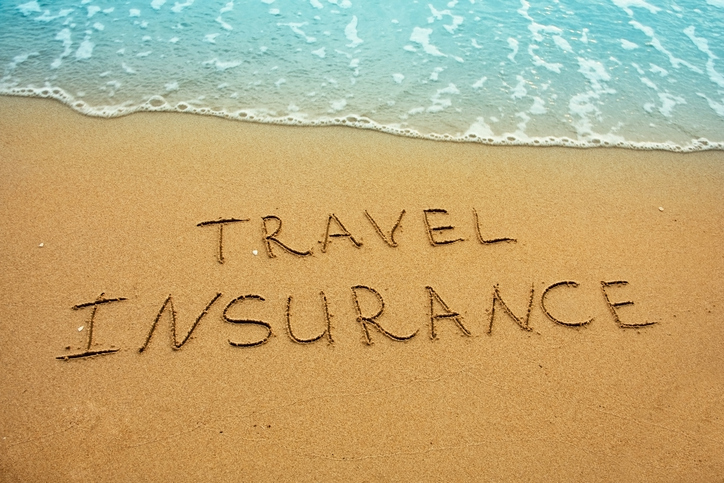Say Yes to Travel insurance
Gov’t of Canada
If you plan to go abroad, even on a day trip to the United States, you should purchase the best travel insurance you can afford before you leave Canada. Your travel insurance should include health, life and disability coverage that will help you avoid large expenses, such as the cost of hospitalization or medical treatment outside Canada. If you are flying, being insured for flight cancellation, trip interruption, lost luggage and document replacement will save you from major disruptions and additional costs. If you are travelling by car, make sure you have driver and vehicle coverage in case you have an accident abroad.
A fact sheet full of important travel insurance tips
During a short vacation on a Caribbean island, a Canadian developed a severe form of pneumonia and had to be admitted to hospital. His health deteriorated, and he was transferred to intensive care and placed on a breathing machine for more than a month. Without insurance, he had to make arrangements with the hospital to pay a bill that amounted to more than $20,000.
You can purchase travel insurance through your travel agent, insurance broker or your employer’s insurance provider. Your credit card company may also offer travel and health insurance. Regardless of how you obtain travel insurance, it is very important that you understand the eligibility requirements, terms and conditions, limitations, restrictions and exclusions of the policy.
Why you need travel insurance
Your Canadian insurance is almost certainly not valid outside Canada. Your provincial or territorial health plan may cover nothing or only a very small portion of the costs if you get sick or are injured while abroad. For more information, contact your provincial or territorial health authority. Hospitals and clinics in some countries have been known to refuse to treat patients who become ill or who have had an accident and who do not have adequate travel health insurance or the money to pay their bills. You could face years of debt paying off the costs of treatment for an illness or accident you suffered abroad. The Government of Canada will not pay your medical bills.
Travel advisories and insurance policies
No matter where in the world you intend to travel, make sure you check the Travel Advice and Advisories twice, once when you are planning your trip and again shortly before you leave. If a Travel Advisory is issued for your destination, after you make your travel arrangements but before or during your trip, it may affect your travel health insurance or trigger your trip cancellation insurance. Make sure you understand any terms and conditions in the policy in regard to travel advice and advisories from the Government of Canada.
Some insurance companies will not honour medical claims made for injuries suffered in a country for which the Government of Canada has issued an official Travel Advisory. Coverage for injuries resulting from war may also be limited. Insurance policies often have exclusion clauses stipulating regions and/or activities that will not be covered.
Selecting travel health insurance
Carefully research your needs and verify the terms, conditions, limitations, exclusions and requirements of your insurance policy before you leave Canada.
When assessing a travel health insurance plan, you should ask a lot of questions. Does the plan provide continuous coverage for the duration of your stay abroad and after you return? Does it offer coverage that is renewable from abroad and for the maximum period of stay? Does the company have an in-house, worldwide, 24-hour/7-day emergency contact number in English and/or translation services for health care providers in your destination country? Does it pay for foreign hospitalization for illness or injury and related medical costs and provide up-front payment of bills or cash advances, so you don’t have to pay out of your own pocket?
Be sure to ask whether the plan covers pre-existing medical conditions. Ask the company to explain the definition, limitations and restrictions of any pre-existing conditions and tests and treatments you may have undergone.
- Make sure you get a written agreement that your pre-existing medical condition is covered, or you could find your claim “null and void” under a pre-existing condition clause.
- Be aware that the agreement must also include a stability clause stating that for you to be covered for any pre-existing medical conditions you must have no changes to or new medical conditions, symptoms or medications during the stability period prior to your trip.
- The agreement should include a compassion clause stating that an inaccurate statement may not invalidate the entire policy, and a change of health clause.
And ensure that the plan provides for medical evacuation to Canada or the nearest location with appropriate medical care and pays for a medical escort (health care provider) to accompany you to and from your destination.
Ensure that deductible costs are clearly explained in the plan. Plans with 100-percent coverage are more expensive but may save money in the long run. The plan could cover health care provider visits and prescription medicines, or emergency dental care or emergency transportation, such as ambulance services. Check whether it excludes or significantly limits coverage for certain regions or countries you may visit.
Finally, ensure that the plan covers the preparation and return of your remains to Canada if you die abroad.
Meeting the terms of your insurance policy
It is your responsibility to know and understand the terms of your insurance policy. Read the fine print carefully and ask for help, if necessary, to fully understand the eligibility requirements and definitions, terms, conditions, limitations and exclusions of the policy.
The information you provide must be accurate and complete. If you have any questions about the application and your medical history, including prescription drugs, tests and other treatments, contact the insurance company and ask them to clarify the issue in writing.
Obtain approval from your insurer before undergoing medical treatment. Routine health checkups, non-emergency care and cosmetic surgery are rarely covered by travel health insurance. Insurance companies may also exclude coverage for mental health disorders, drug- or alcohol-related incidents, or extreme sporting activities such as bungee jumping and rock climbing.
Get a detailed report and invoice from the doctor or hospital before leaving the country where you have received medical treatment. There is nothing more frustrating than trying to get the proper paperwork from thousands of kilometres away. Always remember to submit the original receipts for medical services or prescriptions received abroad. Keep a copy of the documents for your files.
Carry details of your insurance policy and tell your travel agent, a travel companion, and a friend or relative at home how to contact your insurer.





